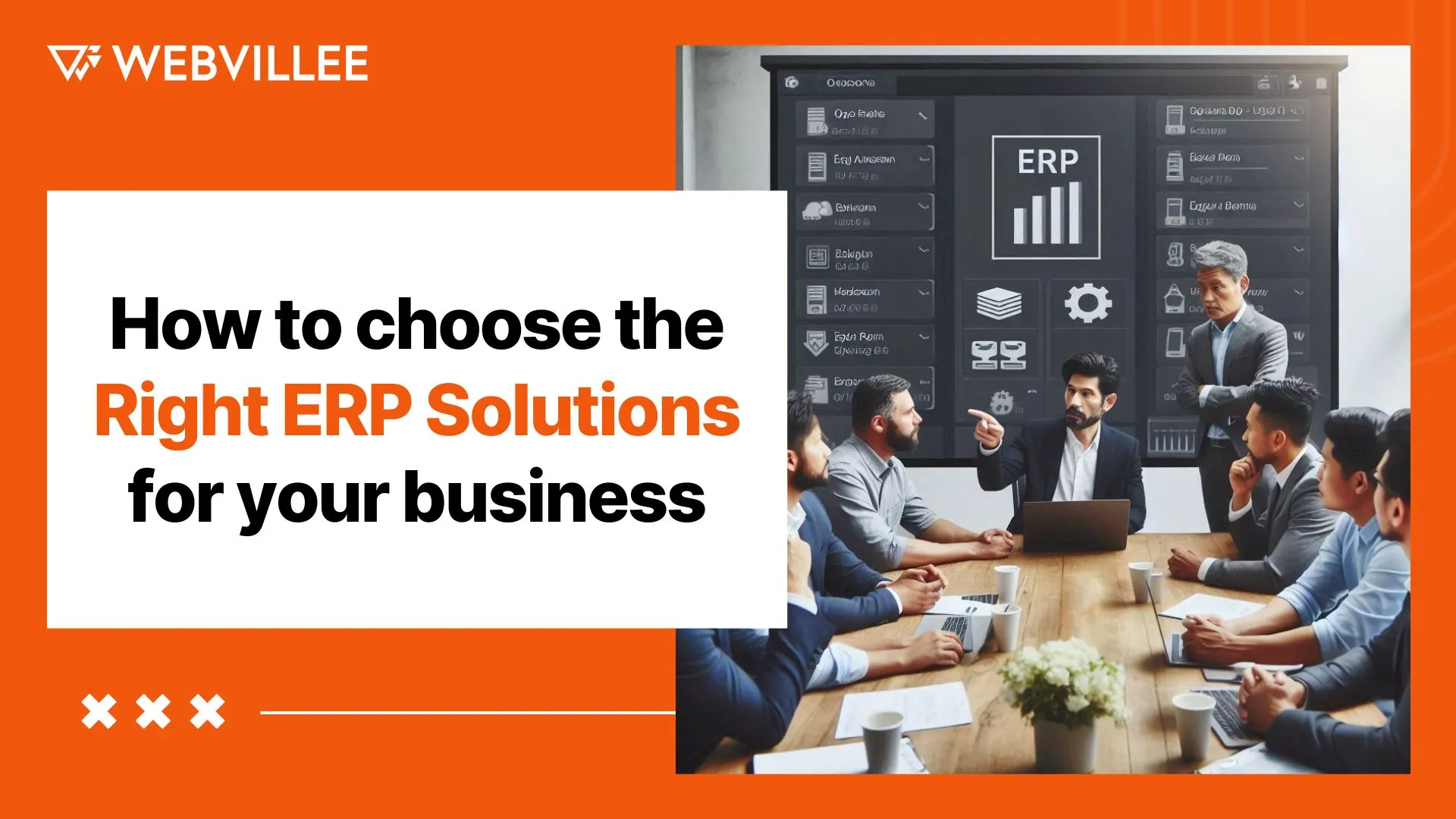Enterprise Resource Planning (ERP) solutions stand as integral tools for businesses and organizations to streamline operations, enhance productivity, and drive growth. However, with so many options available, selecting the right ERP solution can be a challenging task.
In this blog, we’ll dive into the essential factors to consider when choosing an ERP solution for your business. From assessing your unique needs and objectives to evaluating functionalities, scalability, deployment options, total cost of ownership, and vendor reputation, we’ll provide a comprehensive guide to help you make informed decisions.
What is ERP Software?
ERP stands for Enterprise Resource Planning, a software system that integrates various business functions and processes into a unified platform. ERP solutions typically encompass modules for finance, human resources, supply chain management, customer relationship management, and more, providing a view of organisational operations and facilitating data-driven decision-making.
Benefits of ERP Software System
- Improved Efficiency: ERP solutions streamline business processes, automate repetitive tasks, and eliminate manual data entry, leading to increased productivity and operational efficiency.
- Enhanced Visibility: ERP systems provide real-time insights into business operations, enabling better decision-making, resource allocation, and performance tracking across departments.
- Cost Savings: By centralizing data, reducing paperwork, and optimizing workflows, ERP solutions help minimize overhead costs, avoid duplicate efforts, and identify cost-saving opportunities.
- Better Collaboration: ERP platforms facilitate seamless communication and collaboration among departments, teams, and stakeholders, fostering alignment, transparency, and teamwork.
- Scalability: ERP solutions are scalable and can grow with your business, accommodating changes in volume, complexity, and scope without disrupting operations or requiring significant investments in new systems.
- Regulatory Compliance: ERP systems help businesses comply with industry regulations and standards by enforcing data integrity, security measures, and audit trails, reducing compliance risks and penalties.
- Improved Customer Service: With access to accurate, up-to-date information, ERP solutions enable businesses to deliver superior customer service, personalized experiences, and timely responses to inquiries and requests.
Key Considerations for Choosing ERP Solutions
Define Your Business Needs and Objectives
Before embarking on the ERP selection process, it’s essential to define your business needs, objectives, and goals. Assess your current workflows, pain points, and areas for improvement, and identify specific functionalities and features that are critical for your business operations. Consider factors such as industry-specific requirements, scalability, customization options, integration capabilities, and budget constraints when defining your ERP requirements.
Evaluate Vendor Reputation and Experience
When choosing an ERP solution provider, it’s crucial to evaluate the vendor’s reputation, experience, and track record in the industry. Research vendors thoroughly, read customer reviews, and seek recommendations from industry peers to gauge their credibility, reliability, and customer satisfaction levels. Look for vendors with a proven track record of successful ERP implementations, extensive industry expertise, and a commitment to customer support and service.
Assess Functional Fit and Customization Options
Every business has unique requirements and workflows, so it’s essential to assess the functional fit and customization options offered by ERP solutions. Evaluate whether the ERP solution can accommodate your specific business processes, workflows, and industry regulations out-of-the-box or if customization is required. Look for ERP solutions that offer flexibility, and scalability to adapt to your evolving business needs and requirements over time.
Consider Integration Capabilities
Integration is key to maximizing the value of ERP solutions and ensuring seamless connectivity with existing systems, applications, and third-party tools. Evaluate the integration capabilities of ERP solutions, including compatibility with existing hardware and software infrastructure, support for APIs and standard protocols, and ease of data migration and integration. Choose an ERP solution that offers robust integration capabilities to streamline data flow, eliminate silos, and facilitate real-time information exchange across the organization.
Assess Deployment Options: On-Premises vs. Cloud
ERP solutions are available in different deployment models, including on-premises, cloud-based, and hybrid options. Consider the pros and cons of each deployment model based on factors such as cost, scalability, flexibility, security, and IT infrastructure requirements. While on-premises deployments offer greater control and customization, cloud-based ERP solutions provide scalability, accessibility, and cost-effectiveness. Evaluate your business requirements, budget constraints, and IT capabilities to determine the most suitable deployment option for your organization.
Evaluate Total Cost of Ownership (TCO)
When evaluating ERP solutions, it’s essential to consider the total cost of ownership (TCO), including upfront costs, ongoing maintenance fees, licensing fees, implementation costs, training expenses, and potential hidden costs. Calculate the TCO of each ERP solution over the long term, including factors such as software updates, support and maintenance, customization, and scalability, to make an informed decision that aligns with your budget and financial objectives.
Conclusion
Choosing the right ERP solution is a critical decision that can have a significant impact on your business’s success, efficiency, and competitiveness. By considering factors such as business needs, vendor reputation, functional fit, integration capabilities, deployment options, and total cost of ownership, businesses can make an informed decision that aligns with their strategic objectives and long-term goals.
Whether you’re a small startup or a large enterprise, investing in the right ERP solution can streamline operations, drive growth, and position your business for success. By following the guidelines, businesses can navigate the ERP selection process with confidence and select a solution that meets their unique requirements and drives tangible business value.

